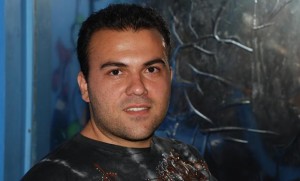 Family members of an American pastor imprisoned in Iran are reporting that they were turned away this week when they attempted to bring blankets and medication to the prison.
Family members of an American pastor imprisoned in Iran are reporting that they were turned away this week when they attempted to bring blankets and medication to the prison.
As previously reported, Pastor Saeed Abedini of Idaho, a former Muslim, left Iran in 2005 and moved to the United States with his wife and children to find religious freedom. Last fall, he traveled back to Iran to build an orphanage and visit his parents—and was about to return to the states—when he was taken into custody.
According to reports, he was arrested for allegedly threatening the national security of Iran, and for attempting to turn youth in the nation away from Islam and toward Christianity. Abedini was then sentenced to eight years in Iran’s notorious Evin Prison, where he has spent the past year. He has struggled with internal injuries following alleged beatings behind bars, and has asked Iranian President Hassan Rouhani to set him free.
Earlier this month, the American Center for Law and Justice (ACLJ), which has been fighting for Abedini’s freedom, reported that the pastor had been transported to a facility that poses an even greater threat to his health and life.
“The ACLJ has confirmed through Pastor Saeed’s family members in Iran that he has been moved from Evin Prison in Tehran to Rajai Shahr Prison in Karaj—an even more dangerous prison where he faces life-threatening conditions and treatment,” Executive Director Jordan Sekulow wrote on the organization’s website.
However, Sekulow states that he has now learned from Abedini’s family members that personal items–including medication–are not allowed at the prison.
“Pastor Saeed’s father tried to visit his son at Rajai Shahr prison … only to be turned away by prison officials,” he explained. “Saeed’s father had brought with him some of Saeed’s personal belongings, blankets to keep him warm, and the medication doctors had prescribed Saeed last July to treat the injuries he had sustained while in Evin prison. Prison officials told the father Saeed could not have any personal belongs, including his medication.”
Sekulow noted that overcrowding at the prison is also a concern.
“Reports state that Rajai Shahr prison was built to house 5,000 inmates, but at present the prison holds roughly 22,000 inmates. Such overcrowding has led to what many call ‘deadly and inhuman’ conditions within the prison,” he outlined. “Human rights groups report that prisoners in Rajai Shahr do not have access to fresh air, proper nutrition, and that louse and communicable diseases are wide spread.”
The organization is calling for continued prayer for Abedini, as well as continued pressure upon American leaders to fight for Abedini’s release. A number of Christians worldwide are participating in a letter-writing and petition campaign launched by the ACLJ called Save Saeed. Over 170,000 letters have been written, according to reports.
Abedini, a former Muslim, converted to Christianity in 2000 and soon became active in the house church movement, establishing approximately 100 churches across the country. He was ordained as a minister in the United States in 2008, three years after fleeing Iran with his family to find religious freedom.
Become a Christian News Network Supporter...


